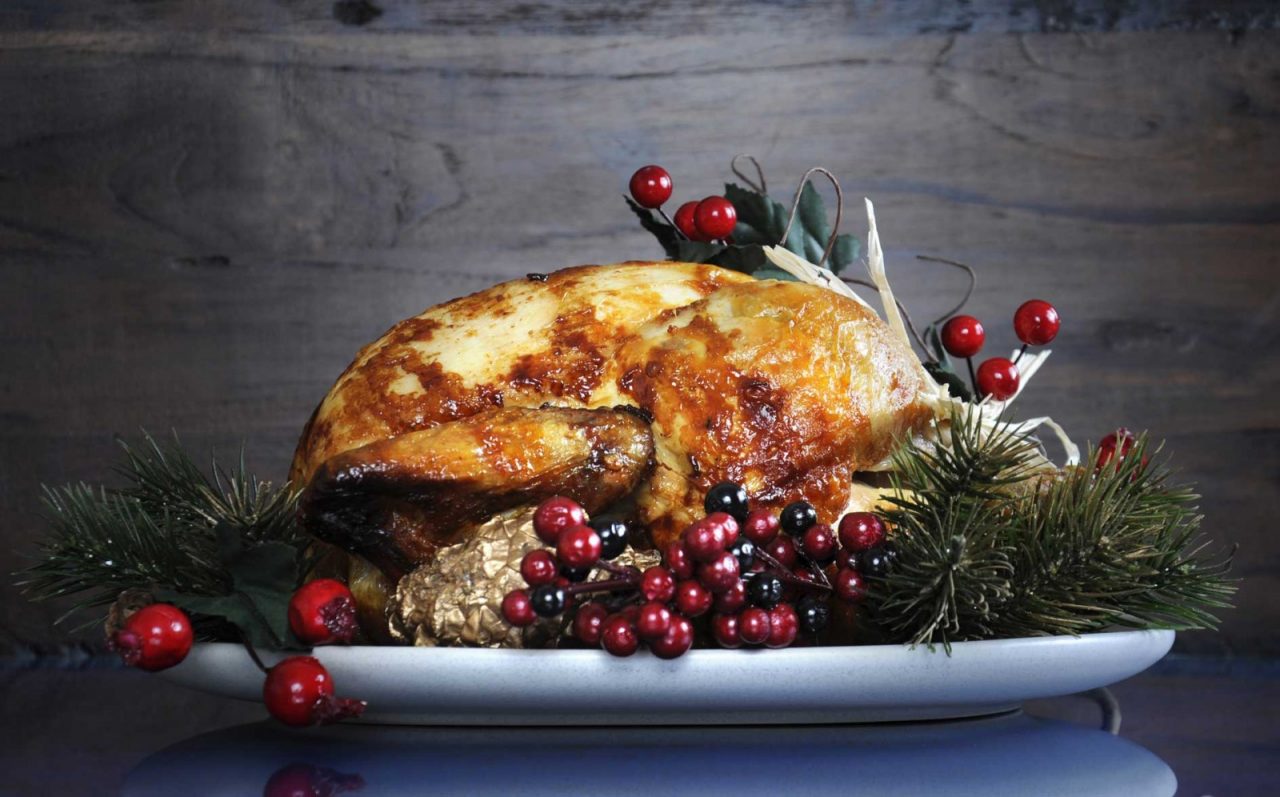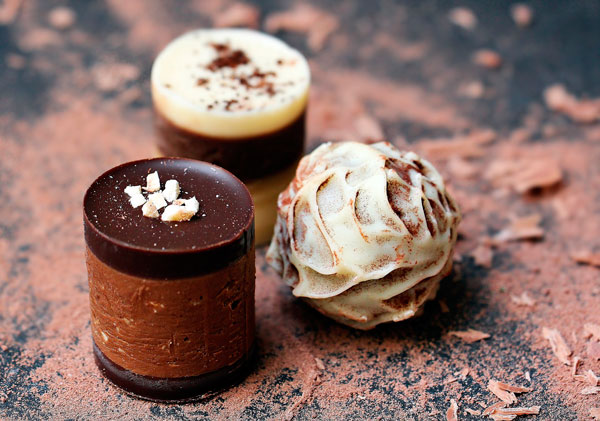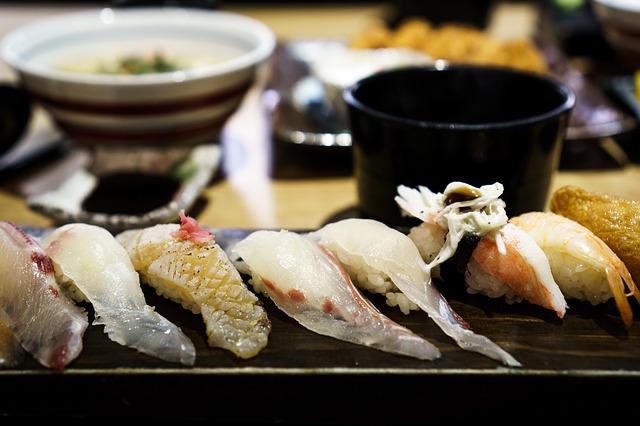Food writer and TV presenter Matthew Fort on culinary trends, British food and averting kitchen disasters on Christmas Day
Matthew, what projects are you working on at the moment?
MF: I’m trying to finish a book, Summer in the Islands, about the six months I spent travelling around the islands of Italy. There are a surprising number of them. I’m also getting in fighting trim for the next series of the Great British Menu that we start filming later this year.
Trends come and go quickly in the food world, and it seems there’s always a new ‘in’ ingredient that people are talking about—like avocado, for example. Do you pay attention to trends like this? Do they have a real impact on the way people eat?
MF: I’m not much of a trendista, to be honest. I can’t keep up. One moment it’s quinoa and pomegranate syrup, the next it’s amaranth and ‘nduja. This season’s trend is next season’s staple. Once upon a time ciabatta, rocket and water baths were trends of the moment. Now can we imagine life without them?
Is there anything happening right now in the world of food that you’re excited about?
MF: I get excited every time I open my mouth to eat, particularly when there’s something I haven’t eaten before. Variety is the spice of gastronomy, and homogeneity means the death of culinary culture.
…Or think is cause for concern?
MF: The amount of food we throw away—roughly a third of all the food we buy. This is appalling, and we all need to be aware of how much we waste.
See also: Matthew Fort’s Champagne Moments
In the age of smartphones and Instagram, are restaurants ever guilty of creating dishes purely because they look good in a photo?
MF: We eat with our eyes as well as with our mouths. The way food looks on the plate sets in motion a whole set of complete physical reactions. So it’s quite right that chefs should pay attention to the way a dish looks. But in the end, food is about eating and enjoying rather than looking good in a photograph, so I do get irked by people snapping away in restaurants. It seems counterproductive to the social pleasures of eating. And posting the pictures on Twitter, Facebook or Instagram is just a way of saying ‘Look, I’m tucking into this fabulous dish, and you’re not.’ It’s boasting. Or gloating.
Today, when everyone can give their opinion on the food they eat—whether it’s on a blog or on TripAdvisor—what can a professional food critic offer?
MF: Anyone can post their opinion and everyone does, without fear or favour and, frequently, without knowledge or command of the English language. A critic should at least have experience of the area they’re criticising and a certain facility with words. If they get things wrong, the aggrieved restaurateur can always write to the newspaper or magazine demanding satisfaction. Try doing that online.
What’s your preferred cuisine, and why?
MF: I’m a culinary omnivore. I suppose I’m Eurocentric by inclination, but what really interests me is the personality of the cook or chef that shines through the food.
What are your favourite restaurants? Do you return to the same ones time and time again, or do you like to explore new places?
MF: I certainly have favourite restaurants I love to return to—The Woolpack Inn at Slad in Gloucestershire, Le Gavroche, Bentley’s, Barbary, Social Eating House and Dabbous in London, Northcote in Lancashire, the Butcher’s Arms at Eldersfield in Gloucestershire to name but a few, but I’m equally keen to discover bright new places as well. I’d be bored if I ate the same stuff day after day.
When it comes to restaurant reviews, do you think media coverage is too London-centric? Are there any cities or towns outside of London that you think have interesting culinary scenes?
MF: Most restaurant critics live in London, and naturally it’s easier to go to somewhere on your doorstep than it is to trek across the country on the off chance you’re going to find a culinary treasure tucked away in a remote town or village. But that should be their job. Not everyone lives in London, and I’d say that Bristol, Edinburgh and Birmingham all have genuinely interesting restaurant scenes at the moment.
What advice would you give to your younger self?
MF: Always eat with an open mind.
Has the industry changed since you first started writing about food?
MF: I started writing about food in 1986, and eating out and about well before that. Food has changed beyond recognition since then, immeasurably for the better—better ingredients, better techniques, better knowledge, better dishes. When I first started going to them, restaurants were French, Italian or Indian, and either formal and stuffy or rough and sleazy. Now it’s possible to find the ingredients for making—or a restaurant where you can eat—any food under the sun. Restaurants have become much more democratic. Even better, there’s a generation of younger chefs drawing on the pioneering work of earlier generations to create a distinctive modern British cooking culture of great originality and distinction based, for the most part, on the remarkable quality of our own native ingredients.
See also: Which Wine? Matthew Fort’s Guide for Every Occasion
What would you say are the biggest mistakes that people make in their kitchens?
MF: They don’t think ahead. Put the dead minutes in any day (travelling to or from work; resting in the bath; meetings etc) to good use thinking about what you can cook later.
Conversely, are there any golden rules to keep in mind when you’re cooking?
MF: Think ahead. Don’t hurry. Don’t be afraid of failure. Only you know what you’re making, and if it doesn’t turn out the way the recipe suggests it should, call it by another name and transform disaster into triumph. Also, always put a pan of water on to boil whenever you start cooking. Sooner or later you’ll need it. Always sharpen your knives before you cut or chop something.
What’s your go-to comfort food dish?
MF: Cold baked beans out of a tin with a silver spoon. Fried egg and bacon sarnie with brown sauce, made with fried bread. Steak and kidney pudding. My mother’s cold creamed rice pudding.
What’s your most memorable Christmas meal?
MF: I’ve had many wonderful Christmas lunches, surfing along on waves of good food, good wine and the laughter of family and friends, but the Christmas I remember best and with deep gratitude was for slightly different reasons.
That Christmas I went to stay with my sister in the south of France. She delegated the cooking of the traditional capon, two of them, actually, that she’d bought at huge expense, to me. I applied my tried and tested ultra-low temperature method (roasted at about 80°C for six hours) in the high-tech French oven. Everything was going swimmingly until the end. I wanted to give the birds a lovely bronzed look for the table. I peered at the French symbols on the oven, and turned the knob up to what I assumed was the maximum temperature.
A moment later, my sister said in alarm: ‘My God, Matty, what are you doing?’
‘Browning the birds,’ I said.
She leapt forward and turned the oven off and wrenched the door of the oven open.
‘Phew. That’s a relief,’ she said.
‘What do you mean?’ I said.
‘That’s the self-clean setting,’ she said. ‘The oven locks itself, and goes super-heated. There’s no way of stopping it once the door’s locked. If I hadn’t opened the door in time, we would’ve just had to have watched the capons turn to charcoal.’
I had to sit down in shock.
I managed to brown the birds at a more orthodox temperature. They were delicious. Christmas dinner was long, riotous, delicious and wonderfully funny, but it’d been a damn close-run thing.
Read more on The Master Chefs about Matthew Fort’s culinary interests and fine dining expertise.



